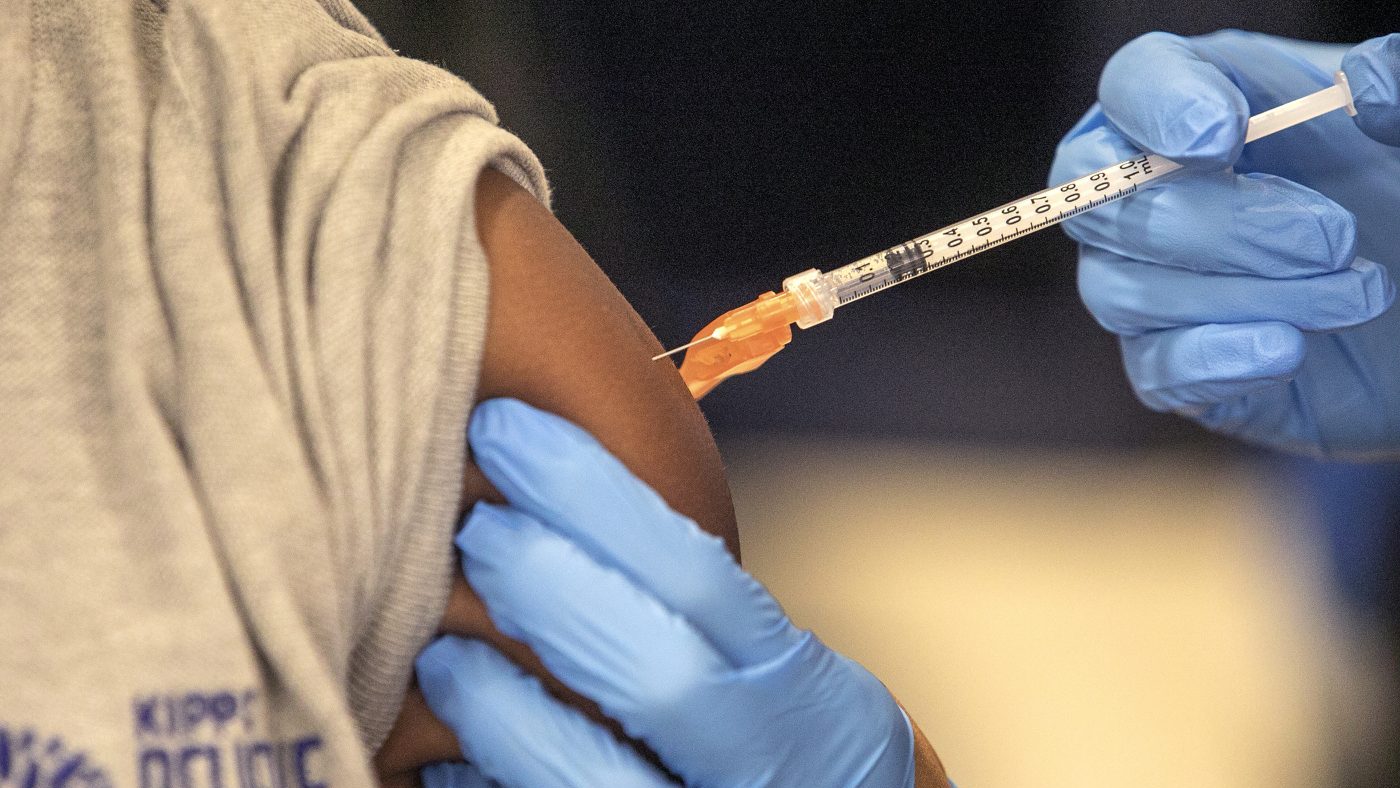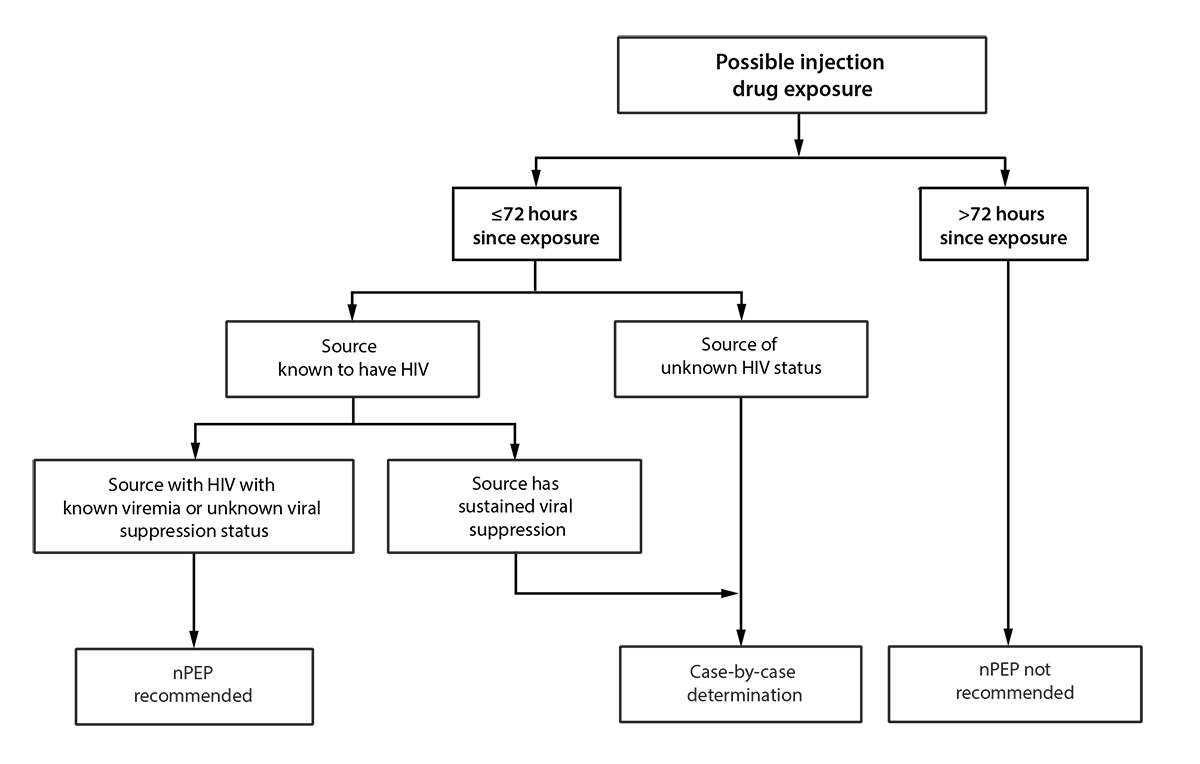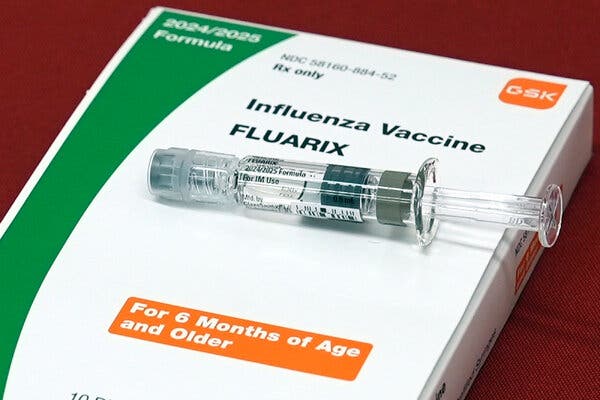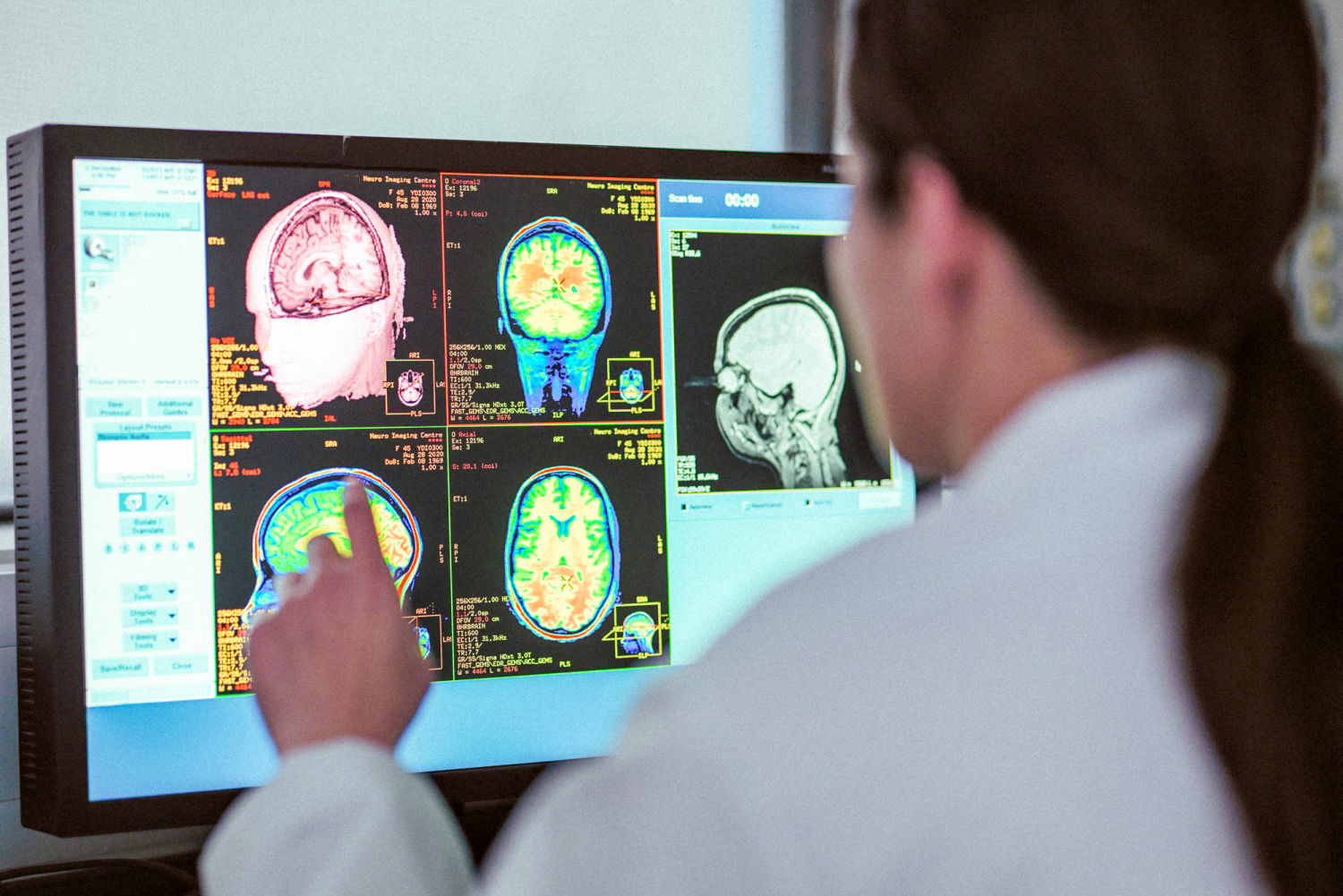Measles Outbreak in Kansas: Cases Rise, Vaccination Urged, Exposure Site Identified
Kansas is experiencing a measles outbreak, with Sedgwick County reporting its first case since 2017 in an unvaccinated child who traveled out of the county. Health officials are urging vaccination, especially for those born between 1957 and 1967 and infants 6-11 months old in Sedgwick County. An exposure site has been identified in Wichita, and residents are advised to monitor for symptoms.

 Wichita Eagle
Wichita Eagle
 KWCH
KWCH
 CIDRAP
CIDRAP
 KAKE
KAKE
RFK Jr.'s HHS to Require Placebo Testing for New Vaccines, Raising Concerns
Health and Human Services Secretary Robert F. Kennedy Jr. plans to require placebo-controlled trials for all new vaccines, a move sparking controversy. Medical experts fear this could limit vaccine access, undermine public trust, and slow down vaccine development. The change raises questions about COVID-19 vaccine updates and potential impacts on other established vaccines.

 The Hill
The Hill
 The New York Times
The New York Times
 The Washington Post
The Washington Post
 NPR
NPR
Cinnamon's Impact on Drug Metabolism: Study Warns of Potential Interactions
A recent study published in Food Chemistry: Molecular Sciences suggests that consuming high concentrations of cinnamon, particularly through supplements, may affect the metabolism of prescription drugs. The research highlights the need for further clinical studies to understand the extent of these interactions and advises caution, particularly for individuals with pre-existing health conditions or those taking medications cleared through the liver or blood thinners.

 Times of India
Times of India
 CNN
CNN
 The Washington Post
The Washington Post
 Money Talks News
Money Talks News
CDC Updates HIV Post-Exposure Prophylaxis Guidelines with Newer Antiretroviral Regimens
The CDC has updated its guidelines for HIV post-exposure prophylaxis (PEP), recommending newer antiretroviral regimens such as Biktarvy and dolutegravir-based combinations. The updated guidelines, the first revision since 2016, emphasize rapid initiation of PEP within 72 hours of exposure, preferably within 24 hours, and include updated testing and follow-up recommendations. PEP is a 28-day course of antiretrovirals taken after potential HIV exposure.

 Centers for Disease Control and Prevention | CDC (.gov)
Centers for Disease Control and Prevention | CDC (.gov)
 POZ - Health, Life and HIV
POZ - Health, Life and HIV
 MSN
MSN
Measles Alert: St. Louis Officials Prepare for Potential Outbreak After Exposure
Health officials in St. Louis are preparing for a potential measles outbreak after confirmed cases in Missouri and Illinois, including a possible exposure at the St. Louis Aquarium. The region's health systems have reactivated the pandemic task force to coordinate efforts, focusing on vaccination rates and combating misinformation. Concerns are heightened by declining vaccination rates and a multi-state outbreak, particularly in Texas.

 Daily Mail
Daily Mail
 STLtoday.com
STLtoday.com
 STLPR
STLPR
 First Alert 4
First Alert 4
No Valid Content Found
The provided HTML input was found to be empty or lacking in substantive news content. No information could be extracted, and therefore a comprehensive description is not possible.

 The Seattle Times
The Seattle Times
Child Flu Deaths Highest in 15 Years; Vaccination Rates Plummet
This news report synthesizes information regarding the severe 2024-2025 flu season, noting a significant increase in child mortality rates attributed to influenza. It addresses contributing factors such as declining vaccination rates, misinformation surrounding vaccines, and co-circulating virus strains. The report further includes recommendations from health officials and an overview of affected populations.

 The New York Times
The New York Times
 Deseret News
Deseret News
 ABC7 New York
ABC7 New York
 Times Union
Times Union
Measles Outbreak Surges in North America: Cases Exceed 1,000 in US
A major measles outbreak is affecting the US, Canada, and Mexico, with over 2,500 cases reported and four deaths. Vaccine hesitancy and misinformation are major factors. The US has surpassed 1,000 cases, marking the second-worst year since measles was declared eliminated. West Texas is an epicenter, and cases are rising in other states. Experts express concern about the impact of vaccine skepticism.

 CNN
CNN
 NBC News
NBC News
 Al Jazeera
Al Jazeera
 Reuters
Reuters
US Measles Cases Exceed 1,000 in 2025, Nearing Worst Year Since Elimination
The US is experiencing a significant surge in measles cases in 2025, with over 1,000 cases reported, primarily due to a large outbreak in West Texas that has spread to other states. This rise puts the nation on track for its worst year since 2000, raising concerns about the effectiveness of vaccination efforts and the potential for further spread.

 CNN
CNN
Six Misunderstood Foods That Can Actually Improve Your Gut Health
This article explores six foods often considered unhealthy that can positively impact gut health. It highlights the benefits of sauerkraut, beans, potatoes, white rice, cruciferous vegetables, and dark chocolate, citing dietitians' recommendations and scientific findings. The article also emphasizes the importance of hydration, stress management, and sleep for overall gut health.

 EatingWell
EatingWell
Embrace These 'Bad' Foods: Dietitians Highlight Gut Health Benefits of Unexpected Choices
This article highlights six commonly perceived 'bad' foods that dietitians actually recommend for improved gut health. These foods—sauerkraut, beans, potatoes, white rice, cruciferous vegetables, and dark chocolate—offer benefits like probiotics, prebiotics, fiber, and resistant starch. The article also emphasizes the importance of hydration, stress management, and sleep for overall gut health.

 EatingWell
EatingWell
Study Finds No Mystery Neurological Disease in New Brunswick Cluster of Cases
A new study published in JAMA Neurology investigated a cluster of neurological cases in New Brunswick initially suspected to be a novel 'mystery' disease. Researchers reassessed patients and autopsy data, concluding that all cases could be attributed to known conditions like Alzheimer's, Parkinson's, and traumatic brain injury. The findings are disputed by the neurologist who originally raised concerns.

 NBC News
NBC News
 CBC
CBC
 National Post
National Post
 The Globe and Mail
The Globe and Mail
Peter Attia's Centenarian Decathlon: Training Now for a Healthy Last Decade
Dr. Peter Attia advocates for proactive preparation for the final decade of life. He introduces the concept of a 'centenarian decathlon,' urging individuals to identify and train for essential physical activities they want to maintain in their later years, such as walking, dancing, and independent living, to enhance their quality of life.

 The New York Times
The New York Times
Peter Attia's Longevity Training: Preparing for the Last Decade of Life
Dr. Peter Attia suggests training now for the physical activities you want to enjoy in your later years. He recommends creating a "centenarian decathlon" list of ten important and challenging physical activities to maintain independence and quality of life into your 80s and beyond.

 The New York Times
The New York Times
Sleep Apnea Linked to Brain Damage and Memory Loss: New Study
A new study published in Neurology suggests that obstructive sleep apnea, characterized by low oxygen levels during sleep, is associated with damage to brain regions crucial for memory. This damage, evidenced by white matter hyperintensities, correlates with reduced volume in the hippocampus and entorhinal cortex, and is linked to poorer sleep-dependent memory performance.

 Neuroscience News
Neuroscience News
Alzheimer's Risk Knowledge: Anxiety Reduced, Motivation Wanes, Studies Show
Recent studies investigate the effects of informing individuals about their Alzheimer's risk based on amyloid PET scans. Results indicate that knowing one's risk, whether high or low, doesn't necessarily increase emotional distress. However, both groups showed a decline in motivation to maintain healthy habits. This has significant implications as preventive Alzheimer's therapies become more likely.

 Neuroscience News
Neuroscience News
 Medical Xpress
Medical Xpress
 Baylor College of Medicine | BCM
Baylor College of Medicine | BCM
 Gizmodo
Gizmodo
Parkwest Surgery Center Faces Lawsuits Over 2023 Infections; Patients Allege Negligence
Parkwest Surgery Center in Knoxville is facing multiple lawsuits after patients developed Mycobacterium fortuitum infections following knee surgeries in 2023. The lawsuits allege negligence and failure to follow proper infection control procedures. Patients claim significant health complications and financial burdens. The center changed management in 2024 and states it is now in compliance with health standards, with no new infections reported since April 2024.

 WBIR
WBIR
Micropipette Precisely Controls Brain Ion Signals, Enabling New Neuroscience Research
Researchers at Linköping University have created an iontronic micropipette capable of delivering ions directly to individual neurons. This allows for observation of how local ion changes affect neurons and glial cells, revealing complex cell dynamics. Early experiments showed astrocytes reacting rapidly to ion shifts, with neuron activation occurring after astrocyte saturation. This could lead to precise treatments for neurological diseases like epilepsy.

 Neuroscience News
Neuroscience News
Algae Microrobots Deliver Medicine Directly to Lungs, Improving Pneumonia Treatment
UC San Diego researchers are developing algae-based microrobots to deliver medication directly to the lungs, overcoming natural barriers like mucus and macrophages. The microrobots, coated with cell membranes to avoid immune responses, showed promising results in treating MRSA-infected mice with pneumonia and delivering chemotherapy drugs to mice with metastatic lung tumors, potentially leading to human trials.

 Newser
Newser
Algae Microrobots Deliver Lung Medicine, Bypassing Defenses: Study
UC San Diego researchers are exploring the use of algae-based microrobots to deliver medication directly to the lungs, bypassing the body's natural defenses. These microrobots, coated with cell membranes to avoid immune responses, have shown promising results in treating MRSA-infected mice and delivering chemotherapy drugs to mice with metastatic lung tumors. Human trials are anticipated.

 Newser
Newser
